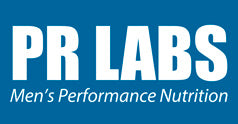Life After Prostate Removal Surgery
According to the American Cancer Society, prostate cancer is the most common cancer among men, but it can often be treated successfully. Many men who are diagnosed with prostate cancer–especially if it is caught early enough– are able to treat it with non-surgical treatments. However, if the cancer spreads beyond the prostate, surgical treatments such as a prostatectomy (prostate removal) may be recommended by an oncologist. In cases that require surgical removal of the prostate, men should be aware of what to expect before, during, and after the procedure.
Having a clear understanding of the surgery can help some men to cope with their cancer diagnosis because no matter what treatment options are presented, it can be a scary time. Today we will discuss what a prostatectomy is, how it is performed, and what life after prostate removal may look like.
What is a Prostatectomy?
A prostatectomy is a surgical procedure for the partial or complete removal of the prostate. There are two types of prostatectomies. The first is referred to as a simple prostatectomy and refers to the partial removal of the prostate gland–used to treat severe urinary symptoms and enlarged prostate glands (benign prostatic hyperplasia). The second is referred to as a radical prostatectomy, in which the entire prostate gland and surrounding tissue are completely removed. The goal of radical prostatectomy is to remove all prostate cancer within the body. There are two approaches to performing this medical procedure, both of which require local anesthesia.
- Robotic surgery
- Minimally invasive procedure with faster recovery time
- Uses smaller incisions and robotic technology
- Open surgery
- Uses traditional incisions and tools
- May be used for more complex cases
In both cases, the surgical process begins with the physician making a small incision in order to gain access to the prostate for removal. Once the prostate is removed, the bladder will be reconnected to the urethra–however, a catheter will be inserted into the bladder to allow urine to drain while the area heals. A week or so after surgery, the doctor will remove the catheter and likely have the pathology results to discuss whether or not the surgery was successful or if further treatment is needed.
What To Expect in Life After Prostate Removal
After the surgery is completed, it is normal to wonder how the removal of your prostate will affect other aspects of life. Initially, the two major side effects from prostate removal surgery are erectile dysfunction (ED) and urinary incontinence.
- Urinary incontinence is the inability to control your urine flow, leakage, or dribbling. Not only is incontinence a physical problem for patients to cope with, but it can cause emotional and social problems as well. As the healing process continues, most men will gradually regain control of their bladder. However, men over 60 may experience incontinence more often than younger men. If bladder control has not returned to normal, your doctor may recommend medication, bladder training, or other physical therapy options.
Many men have reported feelings of frustration and despair after a prostatectomy, but it’s important to know that there is a light at the end of the recovery tunnel. With time, you will slowly begin to feel like your old self.
Ways To Improve Prostate Health
So are there ways to prevent prostate cancer and avoid needing a prostatectomy at all? While there is no way to completely eliminate the chance of BPH or prostate cancer, there are plenty of things that you can do now, to support your prostate health.
Researchers and physicians who have studied the effects of diet and physical activity on prostate health usually recommend a lifestyle that involves an overall pattern of healthy eating rather than following a specific diet. However, certain foods should be included in healthy eating for prostate health.
According to The Prostate Cancer Foundation, here is a list of some healthy foods to try to incorporate into your lifestyle and why they might help to support prostate health:
- Cruciferous Vegetables - Veggies like kale, cauliflower, cabbage, and broccoli. These vegetables are all high in antioxidants, minerals, and vitamins that may help to lower inflammation (which can be related to prostate cancer).
Another way to take care of your prostate health - especially if you are finding it difficult to eat an antioxidant-rich diet - is through supplementation. Here at PR Labs, we have developed a powerful prostate supplement for men. Prost-P10x is a Urologist-Formulated Natural Prostate and Urinary Health Support supplement. The active ingredients in Prost-P10x also include antioxidants and other agents to encourage normal prostate and urinary function that may result from prostate removal surgery.
Conclusion
Prostate Health is an essential part of men’s health, and it’s important to educate yourself on ways that might help prevent prostate cancer or even methods used to screen for early detection.
If you are diagnosed with prostate cancer and are nervous about getting a prostatectomy, just know that many men have walked this same path. You are not alone and although surgery may seem scary, just remember that life after prostate removal can be as fulfilling as before!
Join Our Community & Save 10% Off Your First Order
We’ll send you a coupon code for 10% off your first order. Stay on our list
and we’ll keep you updated with tips for optimal health, new product launches, sales, and more!




